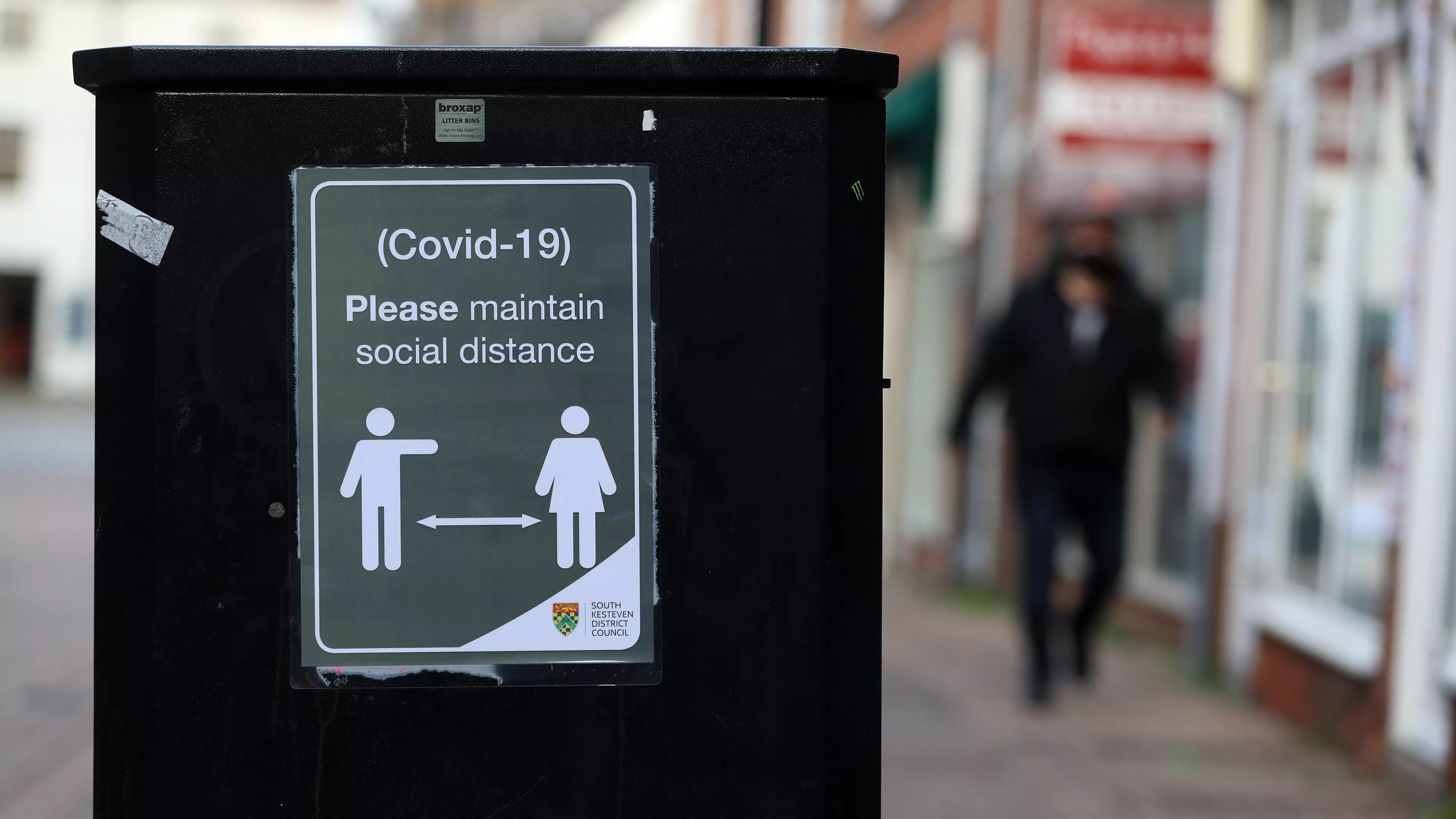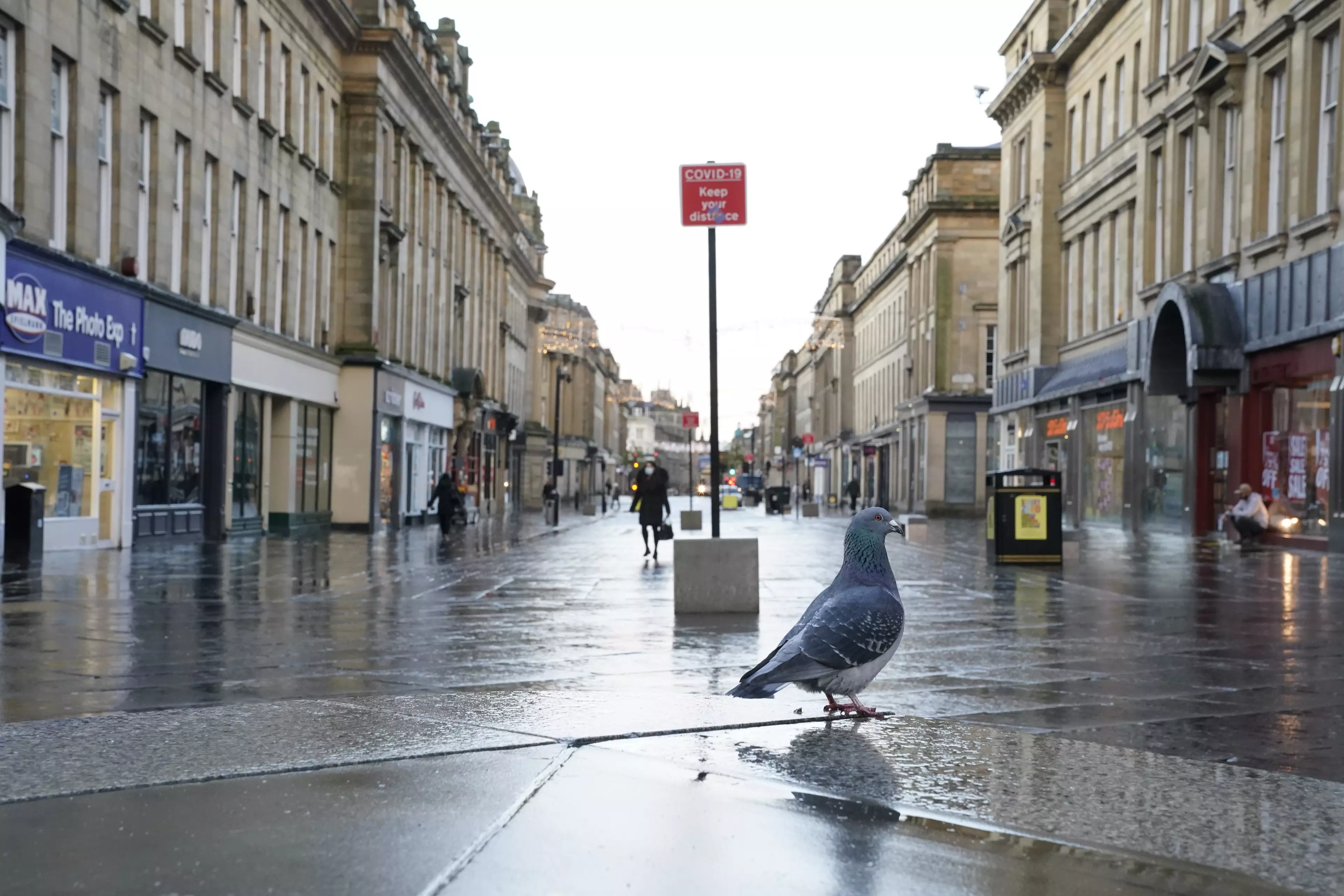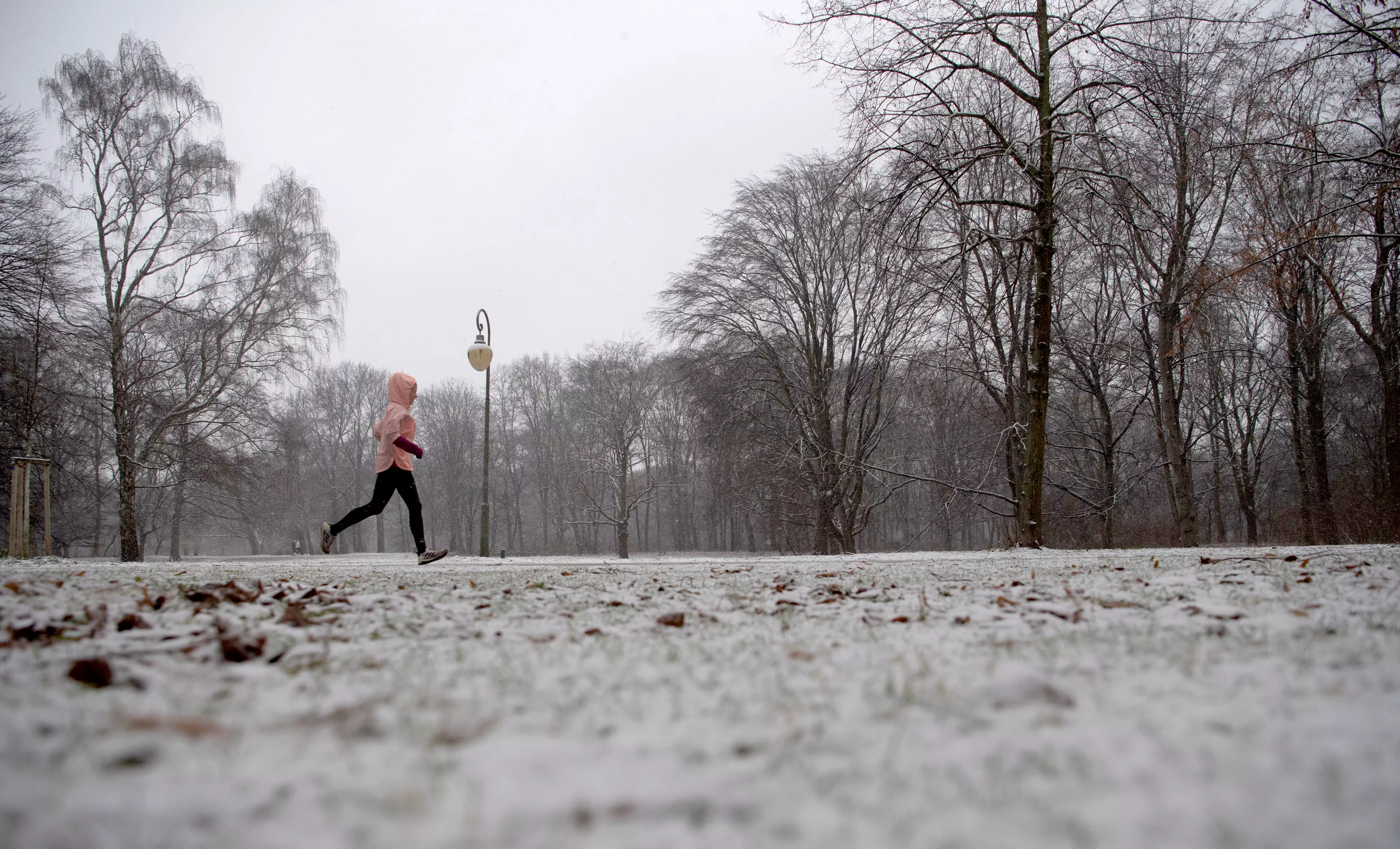
You could be forgiven for not quite understanding what you can and can't do at the moment.
This time last year 'lockdown' was a word few of us had ever even said. Now England's in its third national lockdown, and the rules since last March have been ever-changing - with plenty of bubbles, tiers and tears along the way.
So, where are we at now?

Well the first thing to say is that all the things that were banned pre-Covid are still banned - that means no robbing, embezzling funds, kidnapping etc. It's just that lots of things we used to take for granted - like going for a pint, visiting our families and eating out - are now also banned.
Advert
Currently you can only go outside if you have a 'reasonable excuse'. These are as follows:
- Work - you can only leave home for work purposes where it is unreasonable for you to do your job from home, including but not limited to people who work within critical national infrastructure, construction or manufacturing that require in-person attendance.
- Volunteering - you can also leave home to provide voluntary or charitable services.
- Essential activities - you can leave home to buy things at shops or obtain services. You may also leave your home to do these things on behalf of a disabled or vulnerable person or someone self-isolating.
- Education and childcare - You can only leave home for education, registered childcare, and supervised activities for children where they are eligible to attend. Access to education and children's activities for school-aged pupils is restricted. People can continue existing arrangements for contact between parents and children where they live apart. This includes childcare bubbles.
- Meeting others and care - You can leave home to visit people in your support bubble (if you are legally permitted to form one), to provide informal childcare for children under 14 as part of a childcare bubble (for example, to enable parents to work, and not to enable social contact between adults), to provide care for disabled or vulnerable people, to provide emergency assistance, to attend a support group (of up to 15 people), or for respite care where that care is being provided to a vulnerable person or a person with a disability, or is a short break in respect of a looked-after child.
- Exercise - You can continue to exercise alone, with one other person or with your household or support bubble. This should be limited to once per day, and you should not travel outside your local area. You should maintain social distancing.
- Medical reasons - You can leave home for a medical reason, including to get a Covid-19 test, for medical appointments and emergencies.
- Harm and compassionate visits - you can leave home to be with someone who is giving birth, to avoid injury or illness or to escape risk of harm (such as domestic abuse). You can also leave home to visit someone who is dying or someone in a care home (if permitted under care home guidance), hospice, or hospital, or to accompany them to a medical appointment.
- Animal welfare reasons - you can leave home for animal welfare reasons, such as to attend veterinary services for advice or treatment.
- Communal worship and life events - You can leave home to attend or visit a place of worship for communal worship, a funeral or event related to a death, a burial ground or a remembrance garden, or to attend a wedding ceremony. Weddings, funerals and religious, belief-based or commemorative events linked to someone's death are all subject to limits on the numbers that can attend, and weddings and civil ceremonies may only take place in exceptional circumstances.
There are further reasonable excuses, such as activities related to buying, selling, letting or renting a residential property, or voting.
People caught out and about without a reasonable excuse can be handed a fixed penalty notice of £200 for the first offence, doubling for further offences up to a maximum of £6,400.

You can only form support or childcare bubbles with another household of any size if:
- you live by yourself - even if carers visit you to provide support.
- you are the only adult in your household who does not need continuous care as a result of a disability.
- your household includes a child who is under the age of one or was under that age on 2 December 2020.
- your household includes a child with a disability who requires continuous care and is under the age of 5, or was under that age on 2 December 2020.
- you are aged 16 or 17 living with others of the same age and without any adults.
- you are a single adult living with one or more children who are under the age of 18 or were under that age on 12 June 2020.
It is still possible to meet in larger groups, but this must not be for socialising purposes. Permitted reasons are as follows:
Advert
- for work, or providing voluntary or charitable services, where it is unreasonable to do so from home. This can include work in other people's homes where necessary - for example, for nannies, cleaners, social care workers providing support to children and families, or tradespeople. Where a work meeting does not need to take place in a private home or garden, it should not - for example, although you can meet a personal trainer, you should do so in a public outdoor place.
- in a childcare bubble (for the purposes of childcare only).
- where eligible to use these services, for education, registered childcare, and supervised activities for children. Access to education and childcare facilities is restricted.
- for arrangements where children do not live in the same household as both their parents or guardians.
- to allow contact between birth parents and children in care, as well as between siblings in care.
- for prospective adopting parents to meet a child or children who may be placed with them.
- to place or facilitate the placing of a child or children in the care of another by social services
- for birth partners.
- to provide emergency assistance, and to avoid injury or illness, or to escape a risk of harm (including domestic abuse).
- to see someone who is dying.
- to fulfil a legal obligation, such as attending court or jury service.
- for gatherings within criminal justice accommodation or immigration detention centres.
- to provide care or assistance to someone vulnerable, or to provide respite for a carer.
- for a wedding or equivalent ceremony in exceptional circumstances and only for up to six people.
- for funerals - up to a maximum of 30 people. Wakes and other linked ceremonial events can continue in a group of up to six people.
- to visit someone at home who is dying, or to visit someone receiving treatment in a hospital, hospice or care home, or to accompany a family member or friend to a medical appointment.
- for elite sportspeople (and their coaches if necessary, or parents/guardians if they are under 18) - or those on an official elite sports pathway - to compete and train.
- to facilitate a house move.
People should stay local and reduce journeys as much as possible. If you do need to travel, you should walk or cycle where possible and avoid getting lifts or using public transport - which makes social distancing more difficult.
You can only travel internationally - or within the UK - where you first have a legally permitted reason to leave home.
Advert
The list of reasons you can travel outside your area include, but are not limited to:
- work, where you cannot reasonably work from home
- accessing education and for caring responsibilities
- visiting those in your support bubble - or your childcare bubble for childcare
- visiting hospital, GP and other medical appointments or visits where you have had an accident or are concerned about your health
- buying goods or services that you need, but this should be within your local area wherever possible
- outdoor exercise. This should be done locally wherever possible, but you can travel a short distance within your area to do so if necessary (for example, to access an open space)
- attending the care and exercise of an animal, or veterinary services
Businesses and venues which must close are as follows:
- non-essential retail, such as clothing and homeware stores, vehicle showrooms (other than for rental), betting shops, tailors, tobacco and vape shops, electronic goods and mobile phone shops, auction houses (except for auctions of livestock or agricultural equipment) and market stalls selling non-essential goods. These venues can continue to be able to operate click-and-collect (where goods are pre-ordered and collected off the premises) and delivery services.
- hospitality venues such as cafes, restaurants, pubs, bars and social clubs; with the exception of providing food and non-alcoholic drinks for takeaway (until 11pm), click-and-collect and drive-through. All food and drink (including alcohol) can continue to be provided by delivery.
- accommodation such as hotels, hostels, guest houses and campsites, except for specific circumstances, such as where these act as someone's main residence, where the person cannot return home, for providing accommodation or support to the homeless, or where it is essential to stay there for work purposes.
- leisure and sports facilities such as leisure centres and gyms, swimming pools, sports courts, fitness and dance studios, riding arenas at riding centres, climbing walls, and golf courses.
- entertainment venues such as theatres, concert halls, cinemas, museums and galleries, casinos, amusement arcades, bingo halls, bowling alleys, skating rinks, go-karting venues, indoor play and soft play centres and areas (including inflatable parks and trampolining centres), circuses, fairgrounds, funfairs, water parks and theme parks.
- animal attractions (such as zoos, safari parks, aquariums, and wildlife reserves).
- indoor attractions at venues such as botanical gardens, heritage homes and landmarks must also close, though outdoor grounds of these premises can stay open for outdoor exercise.
- personal care facilities such as hair, beauty, tanning and nail salons. Tattoo parlours, spas, massage parlours, body and skin piercing services must also close. These services should not be provided in other people's homes.
- community centres and halls must close except for a limited number of exempt activities, as set out below. Libraries can also remain open to provide access to IT and digital services - for example for people who do not have it at home - and for click-and-collect services.
Businesses and venues which can remain open are as follows:
- essential retail such as food shops, supermarkets, pharmacies, garden centres, building merchants and suppliers of building products and off-licences.
- market stalls selling essential retail may also stay open.
- businesses providing repair services may also stay open, where they primarily offer repair services.
- petrol stations, automatic (but not manual) car washes, vehicle repair and MOT services, bicycle shops, and taxi and vehicle hire businesses.
- banks, building societies, post offices, short-term loan providers and money transfer businesses.
- funeral directors.
- laundrettes and dry cleaners.
- medical and dental services.
- vets and retailers of products and food for the upkeep and welfare of animals.
- animal rescue centres, boarding facilities and animal groomers (may continue to be used for animal welfare, rather than aesthetic purposes).
- agricultural supplies shops.
- mobility and disability support shops.
- storage and distribution facilities.
- car parks, public toilets and motorway service areas.
- outdoor playgrounds.
- outdoor parts of botanical gardens and heritage sites for exercise.
- places of worship.
- crematoriums and burial grounds.
You can find more detail about the rules - covering bubbles, overnight stays, financial services and care home visits - here.
Featured Image Credit: PATopics: UK News, lockdown, England, Coronavirus, Covid-19